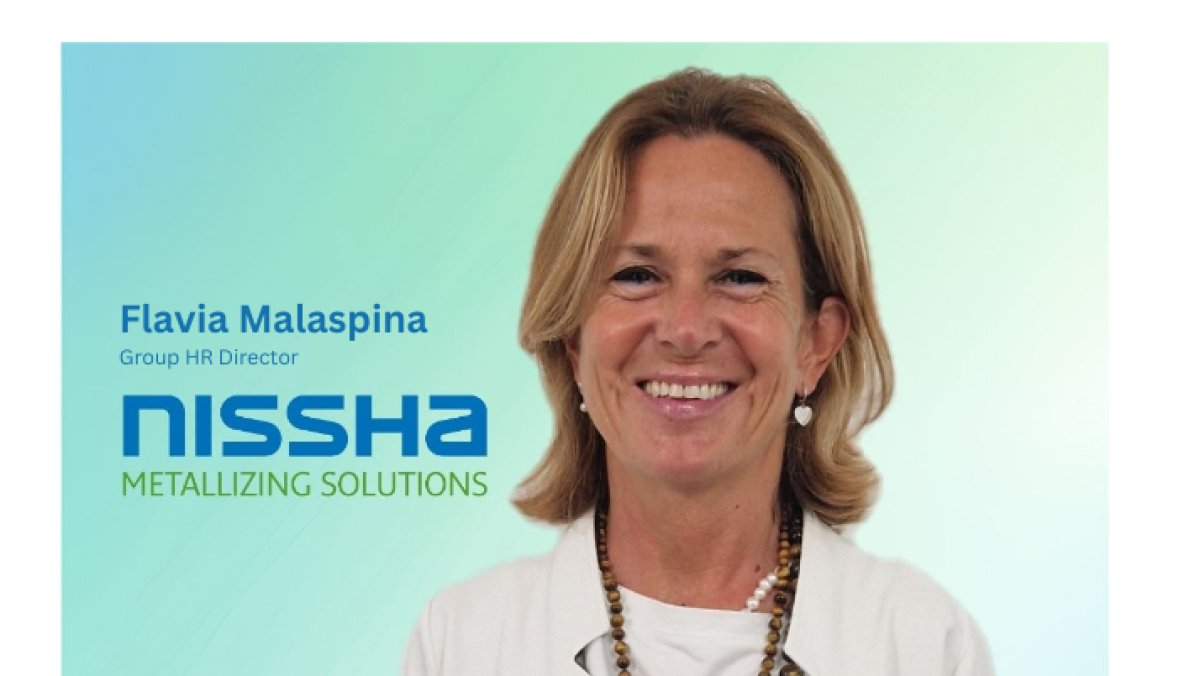The Evolution of HR: Innovation, Inclusion, and the Road Ahead
Over the past few years, the role of Human Resources has undergone a profound transformation. Once seen as a purely administrative function, HR now stands at the strategic core of organizations—driving cultural change, guiding talent development, and shaping the future of work.
To explore this ongoing evolution, we sat down with our HR Director, Flavia Malaspina, based in Casalgrasso, Italy. With nearly two decades of experience in both multinational and medium-sized companies, Flavia oversees HR teams across locations including Casalgrasso, Franklin, Genk, Berlin, and Osasco. She joined Nissha Metallizing Solutions in June 2021 and brings a visionary approach to people management.

Flavia shared her insights on the recent evolution of the HR role and the challenges that HR professionals will face in the next 5 to 10 years.
HR in Transformation: From Operational to Strategic Partner
“In recent years, human resources have become a key component of business success,” Flavia explains. “It’s no longer just an administrative function — it’s now recognized as an independent, strategic pillar within companies. We are responsible for attracting, managing, and developing talent in a way that aligns with business goals.”
One of the major shifts has been the rise of innovation in HR management. Flavia emphasizes the importance of a forward-thinking mindset: “Living in the future to design the present should be the new approach.” This means anticipating business needs and challenges before they arise and positioning HR as a true strategic partner to leadership.
New technologies, such as AI-driven tools like Microsoft 365 Copilot, are accelerating this evolution. “They help simplify talent acquisition, optimize employee experience, and improve key HR metrics. This frees up time to focus on people-centered strategies and leadership development.”
The Challenges Ahead: 7 Priorities for HR
Looking ahead, Flavia identifies seven key challenges and priorities that will shape the HR function over the next five to ten years:
Diversity, Equity & Inclusion (DEI)
Building inclusive and equitable workplaces is not just a trend — it's a necessity. Strengthening DEI efforts will be vital to creating environments where everyone can thrive.
Employee Well-being
“Engagement and productivity are directly tied to how people feel at work,” Flavia notes. Supporting mental health, work-life balance, and overall well-being will remain a top priority.
Crossover work patterns
As routine tasks become automated, human roles will shift toward complex, strategic decision-making. “Crossover work patterns will emerge, with humans and machines complementing each other’s strengths.”
Upskilling and Reskilling
Lifelong learning will be essential. Organizations must invest in training programs to ensure their workforce can keep pace with technological and market changes.
Succession Planning
A solid succession plan ensures continuity, talent development, and employee motivation. “It’s not just about filling roles,” says Flavia, “but about preparing future leaders and building internal career pathways.”
One Company Culture
In a global organization, culture acts as the glue. Promoting shared values and a sense of belonging across geographies is critical to creating a cohesive and collaborative environment.
Feedback and Process
“Feedback isn’t just about performance,” Flavia explains. “It’s about growth, alignment, and building trust.” Encouraging regular feedback and adopting a mentorship mindset are key for nurturing teams and guiding them toward their full potential.
Promoting DEI, supporting well-being, adapting to AI, investing in learning, planning for leadership continuity, fostering a unified culture, and embracing feedback — these priorities aren’t just tasks on HR’s to-do list. They represent a broader transformation in how organizations think about people and performance. As Flavia sees it, meeting these challenges requires more than operational excellence. It demands a deep shift in mindset.
A People-Driven Future
“As HR professionals, we must go beyond policies and procedures,” she explains. “Our role is to create a workplace where people feel valued, supported, and empowered to grow — both personally and professionally.” In this context, human resources become a true driver of business transformation. By connecting strategy with people, HR ensures that organizations are not only resilient, but also deeply human-centered. “Our mission is to foster growth, well-being, and a strong sense of shared purpose. That’s how we build the foundation for long-term success.”
The future of HR, as Flavia defines it, is not just about adapting — it’s about leading with passion, empathy, and purpose. A future built on trust, innovation, and above all, people.
At Nissha Metallizing Solutions, we believe people drive progress.
We’re building a culture rooted in innovation, inclusion, and continuous growth — where every voice matters, and every role contributes to something greater.
If you're passionate about shaping the future of work and want to grow within a purpose-driven team, explore our career opportunities or connect with us to learn more about our culture.